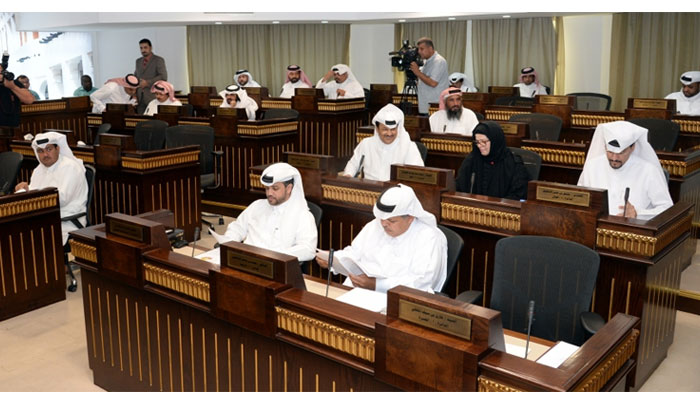By Ayman Adly/Staff Reporter
More affordable housing solutions should be provided in the country to cater to the requirements of the growing expatriate population so that people do not engage in practices such as the illegal partitioning of residential villas, it was observed at a meeting hosted by the Central Municipal Council (CMC) Tuesday.
At the meeting, the CMC hosted officials from the Ministry of Municipality and Urban Planning (MMUP) and Qatar General Electricity & Water Corporation (Kahramaa) to discuss the phenomenon of making unauthorised divisions in residential villas to create smaller housing units so as to accommodate several families.
CMC members argued that the practice had various negative implications, including putting an additional burden on public utilities and facilities such as parking lots, roads, water, electricity, garbage disposal and the drainage system.
Besides, they argued that unauthorised partitioning and the practice of several families sharing the same villa could also have undesired safety, security social and even ethical implications.
Meanwhile, CMC member Hamad Lahdan al-Muhannadi argued that such a practice was a normal consequence of the shortage of adequate and suitable units in apartment blocks.
“Most buildings in the country follow the two- or three-storey system, producing a limited number of units. Consequently, people resort to such practices. We need to find practical and valid alternatives before taking any measures against this practice. The urban planning authorities should adopt more open strategies and give licences for higher apartment blocks in different parts of the country. When the units are available, the situation will ease,” he said.
CMC chairman Saud al-Hinzab pointed out that the council had issued various recommendations on authorising taller buildings in various parts of the country, including C-Ring Road, New Salata and other places in Doha and Al Rayyan. However, these were rejected by the MMUP as they involved putting extra load on public services, which were not designed for such usage.
Both Kahramaa and MMUP stressed that they were not authorised to enter family-inhabited residential villas and inspect them without permission from the owner and legal entities in the country. This was usually done in response to a properly filed complaint.
Also, Kahramaa would not enhance power supply for a house unless an authorisation was given by the municipality concerned.
CMC member Mohamed bin Zafir al-Hajiri suggested that the Ministry of Interior could play a vital role in curbing such practices by tying the residency permit to the Kahramaa number, so that the system does not accept the same number for multiple individuals.
However, some CMC members saw this as impractical, with the issue remaining unresolved because of the high and uncontrolled rents of apartments.
CMC vice-chairman Jassim al-Malki said the practice of partitioning villas has created a lucrative business for many expatriates, who sub-let such units to others and earn big profits. Similarly, other members said some locals help in this by leasing their property to people who engage in such activities.
Law No 4 of 1985 regarding the organisation of buildings bans any unlicensed modifications to the approved design of a building or altering its stated purpose without the approval of the authorities concerned. A fine of QR250-500 for each square metre is levied on the violator besides restoring the place to its original shape.
Recently, the MMUP conducted a campaign at such villas, but it was limited to those occupied by single expatriate workers and villas that had plywood partitions and portacabins.

A moment from the meeting hosted by the Central Municipal Council
